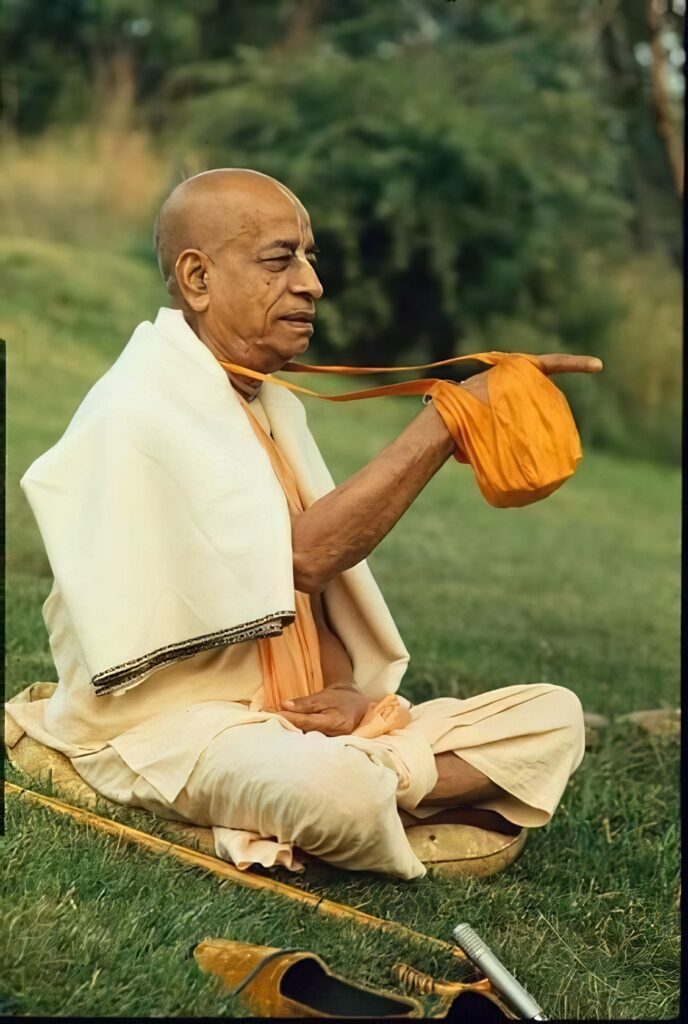A problem we often have in our movement is what some call “the guru syndrome”.

We understand that spiritual masters have the duty of training their disciples on how to properly respect and serve Krsna. One of the ways they do that is by training their disciples to offer them the same respect they would offer to Krsna. We usually can’t see Krsna until we are in a very advanced platform of devotional service, what to say about directly serving Him, but by serving a self-realized spiritual master we can get the same benefit.
We can see that Srila Prabhupada was training his disciples like that. Once, when they came on a Rolls-Royce to take him from the airport, he accepted it, but later said that actually, a Rolls-Royce was not sufficient, since Krsna travels in a golden chariot. This makes the point we should try to serve the spiritual master with all the best, just like we should offer all the best to Krsna. Of course, a bonafide spiritual master does this out of the desire to help his disciples improve, not out of false prestige. There are of course also cases of false gurus, but this post is not about them.
So, spiritual masters often train their disciples in such a way to gradually teach them how to serve Krsna and this is proper. However, after going through this training for some time, some disciples also start to preach, and that’s when the “guru syndrome” can appear. They may then start demanding similar standards they were trained to offer to the guru: good food, comfortable rooms, plane tickets, etc. In other words, they start wanting to “train” others to the same standard, but now putting themselves on the role of guru.
There are several problems with this attitude. The first problem is that often they do that with the wrong mentality, out of a sense of entitlement. Instead of seeing themselves as servants of Krsna who are having the opportunity of doing some preaching and are being supported on this intent by kind hosts, they see themselves as patita-pavanas, who are accepting great inconveniences to benefit the fallen souls of Kali-Yuga. Under this mistaken mentality, they become demanding, burdening their hosts and thus creating a difficult situation for everyone.
A second problem is that this leads to the development of pratistha, the desire for name and fame, position, etc. This can lead one to gradually abandon good spiritual practices and instead focus on playing a role, pretending to be an advanced devotee instead of factually developing the qualities of one.
Becoming a spiritual master is actually an incredibly dangerous position since the guru is forced to accept worship from his disciples as a representative of Krsna. The guru is then supposed to pass this worship upwards towards his own spiritual master, all the way to Krsna. If a spiritual master breaks this cycle by thinking of himself as the recipient of such worship, he becomes fallen. As Srila Bhaktisiddhanta Sarasvati Thakura mentions, as soon as one starts seeing himself as a worshipable guru, he stops being a Vaishnava. It’s a very thin line. Usually, bonafide Vaishnavas accept becoming gurus only after doing everything possible to avoid it. Neophytes, however, are often fond of imitating it, without understanding the risks.
A third problem is that even if they can speak well, their preaching ends up not being very effective, not only because the wrong consciousness limits the effect of their words, but also because intelligent people can see behind the facade, and thus become repulsed by it. As a result, they may amass some sentimental followers who think they are pure devotees, but their preaching will fail to have a lasting effect.
This kind of attitude can also easily burn the hosts, who are often new devotees who are receiving the supposed sadhu in good faith, hoping to see some good example that can inspire them in spiritual life. When the supposed sadhu behaves in a less than exemplary way, they often develop the idea that all seniors are like that, which can push them out of spiritual practice, or at least become wary in assisting other preachers in the future.
Yet another problem is that this enjoying mentality can lead to a fall down or some other type of scandal. Once one develops a sense of entitlement, he may start abusing people who come to him, multiplying the negative consequences.
There is a huge difference between a guru who is training his disciples to offer proper respect to a representative of Krsna and an ordinary preacher who is just being over-demanding. The main difference is that a guru is training his own disciples, people who asked him to give them such training, while an ordinary preacher is just dealing with people who offer to host or support him in good faith. Since these people are not his disciples, he doesn’t have the right to demand anything. Instead, he should follow the general etiquette for traveling sadhus, accepting a little from each householder and avoiding becoming a burden.
We can see that Prabhupada himself was following this etiquette when he was hosted by people who were not his disciples, like when he stayed with Gopal and Sally Agarwal in Pennsylvania, as well as with several hosts in India, which is extensively documented in the Prabhupada Lilamrta, as well as in the memories series.
Avoiding the “guru syndrome” is yet another trap we should avoid in our path back to Godhead. It may not sound like something very realistic for now, since most of us are not traveler preachers and do not have plans of becoming one, but it’s something to keep in mind, since the day eventually may come. All of us will become seniors eventually, and the day will come when we will be the ones having to set the example.
